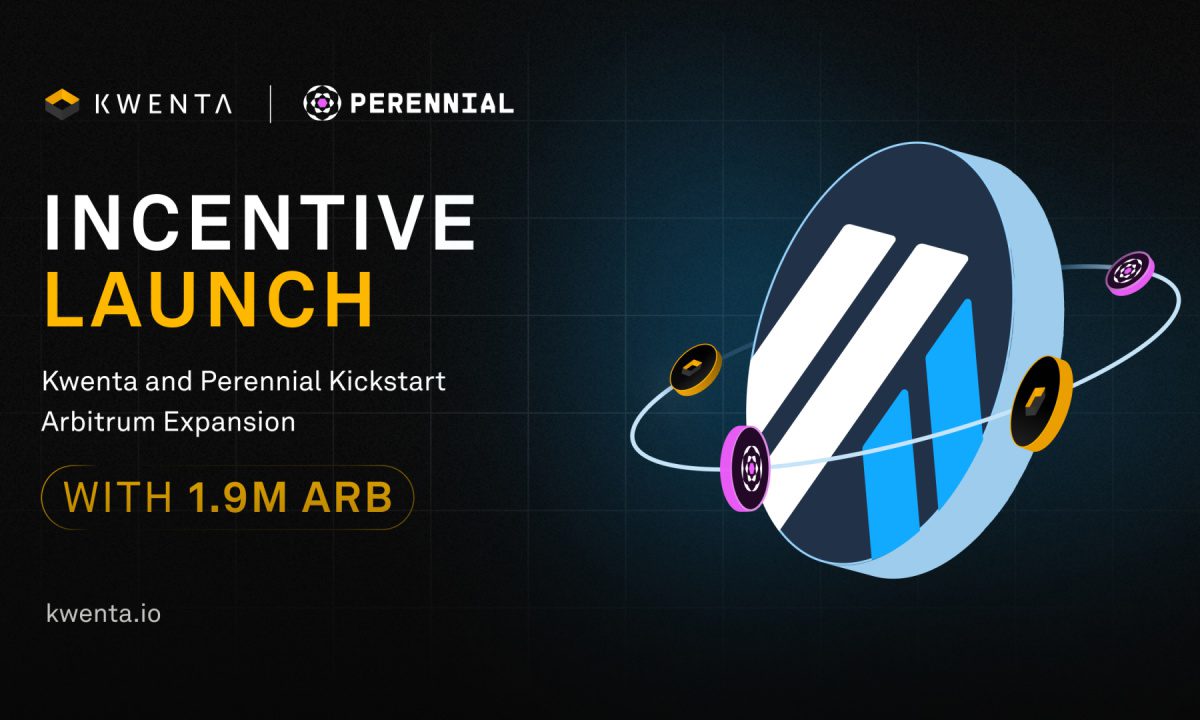What Is A Spot Ethereum ETF? How Important Is The New Ether ETF?
Amidst the fervor surrounding the 2024 debut of spot Bitcoin ETFs, attention is now shifting towards the speculation surrounding the next crypto-themed exchange-traded fund (ETF). Specifically, there’s growing interest in spot Ethereum ETFs. While launch dates for spot Ethereum ETFs are still unclear, market observers anticipate their introduction in the coming months. Let’s learn about this interesting topic with Coincu.

Ethereum ETF Overview
What are ETFs?
ETFs, or Exchange-Traded Funds, are a popular investment option for individuals seeking diversified portfolios with ease of trading. As the acronym suggests, ETFs are traded on stock exchanges, functioning as investment funds that pool money from numerous investors to acquire a variety of assets, including stocks, bonds, commodities, or cryptocurrencies.
ETFs offer risk diversification, as they typically hold a basket of assets across various sectors or industries. Moreover, ETFs often come with lower costs compared to directly purchasing individual assets. By pooling resources, ETFs can achieve economies of scale in trading and management expenses, resulting in cost savings for investors.

ETFs have gained popularity among investors due to several key advantages:
ETFs are traded on stock exchanges, ensuring easy and quick buying and selling of ETF shares during trading hours.
ETFs offer investors access to a diverse range of industries, countries, or assets through a single fund. By investing in an ETF, individuals can achieve broad exposure to various sectors, mitigating the risk associated with individual investments.
Investing in ETFs can lead to significant cost savings compared to purchasing individual assets. ETFs typically have lower transaction costs and management fees since these expenses are shared among all investors in the fund.
ETFs provide investors with clarity by disclosing information about their portfolio holdings on a daily basis. By knowing exactly what assets are held within the ETF, investors can make informed decisions regarding their investment strategies.
What is an Ethereum ETF?
Functioning much like traditional ETFs, Ethereum ETFs are designed to track and invest in the Ethereum cryptocurrency. Investors can purchase shares of these funds, which in turn capture the value of Ethereum or track the Ethereum market index.
The appeal of Ethereum ETFs lies in their convenience and accessibility. By investing in an ETF, individuals can sidestep the need to directly acquire and secure Ethereum tokens. For investors seeking to participate in the burgeoning Ethereum market without the hassle of managing digital assets themselves, Ethereum ETFs provide a viable and efficient solution.

What is a spot Ethereum ETF?
Functioning akin to traditional ETFs, spot Ethereum ETFs are managed by institutions that commit to purchasing and holding Ethereum (ETH) in their reserves.
These ETFs are subsequently listed on conventional stock exchanges, where they issue shares representing ownership of the ETF. Traders can then gain exposure to the real-time price movements of Ethereum through trading these shares, as they reflect the value of the ETH held by the institution.

It’s essential to understand that while owning shares of a spot Ethereum ETF provides exposure to the ETF’s underlying ETH reserves, it does not equate to direct ownership of individual ETH tokens. Shareholders hold claims on the value of the ETH holdings rather than the cryptocurrency itself.
Moreover, institutions managing the ETF may employ various strategies with the underlying ETH, such as lending it out or engaging in staking activities, in a bid to potentially enhance returns for the ETF.
Read more: Solana vs Ethereum: Outstanding Speed Differences
How Does a Spot Ethereum ETF Work?
A spot Ethereum ETF operates as a pool where traders contribute funds to purchase Ethereum directly. Unlike futures-based ETFs, which track Ethereum’s price using derivatives like ETH futures, spot Ethereum ETFs hold the actual Ether coins to mirror the cryptocurrency’s price movements. Here’s how it works:
Spot Ethereum ETF buying structure
When investors buy shares of a spot Ethereum ETF, their funds are pooled together to acquire Ethereum coins. The value of the ETF shares then correlates with the price of Ether. If the price of Ethereum increases, the value of the ETF shares rises proportionally, and conversely, if the price of Ethereum decreases, the value of the ETF shares declines.
Behind the scenes, the ETF manager plays a crucial role in ensuring that the ETF accurately reflects the real-time market value of Ethereum. To maintain alignment with Ethereum’s price fluctuations, the manager may engage in activities such as creating and redeeming units, which involve exchanging large blocks of ETF shares for the underlying Ether or vice versa.
Exposure to ETH price
Despite the manager’s efforts to keep the ETF’s value in line with Ethereum’s price, slight disparities may occur due to factors such as trading costs and the frequency of rebalancing. Nonetheless, the goal of a spot Ethereum ETF is to provide investors with a convenient and transparent means of gaining exposure to Ethereum’s price movements without the complexities associated with directly owning and managing the cryptocurrency.
Read more: Ethereum Dencun: Important Update Enhances Network Stability
Benefits of spot Ethereum ETF
Ethereum ETFs offer several compelling benefits for investors looking to participate in the Ethereum market without the intricacies of directly managing digital assets. Here are some key advantages:
Ethereum ETFs enable investors to tap into the Ethereum market without the need to directly own and manage the cryptocurrency through traditional exchanges. By including Ethereum ETFs in their investment strategy, individuals can spread their risk across multiple assets, potentially mitigating losses if one asset underperforms.
Ethereum ETFs are typically available on public exchanges, making it convenient for investors to buy and sell shares during regular trading hours. Unlike purchasing and managing Ethereum directly, which can involve navigating various cryptocurrency exchanges and wallets, investing in an Ethereum ETF streamlines the process, offering a familiar and straightforward investment avenue.
One of the notable advantages of investing in Ethereum ETFs is the assurance of professional management. With an ETF, investors entrust the oversight and security of their digital assets to seasoned experts who manage the fund on their behalf.
Instead, they can rely on the expertise of ETF managers to navigate the dynamic cryptocurrency market and make informed investment decisions that align with the interests of shareholders.
Storing and securing Ethereum tokens can be a daunting task, requiring knowledge of cybersecurity best practices and constant vigilance against potential threats.
By investing in Ethereum ETFs, individuals can sidestep the risks associated with hosting wallets and safeguarding private keys. Instead, the responsibility for safeguarding digital assets falls on the ETF custodians and managers, who employ robust security measures to protect investors’ holdings.
Read more: Ethereum Account Abstraction: Helping Users Have A Great Experience
Spot Ethereum ETF vs. Ethereum Future ETF
Spot Ethereum ETFs and Ethereum futures ETFs represent two distinct types of investment products within the realm of Ethereum ETFs, each offering unique features and investment strategies tailored to different investor preferences:
Spot Ethereum ETFs function akin to large digital wallets, directly holding Ethereum tokens. These ETFs’ values closely track the real-time price movements of Ethereum, providing investors with direct exposure to the cryptocurrency’s price fluctuations.
For instance, if an ETH Spot ETF is created, the fund manager purchases actual Ethereum tokens, and the ETF’s value fluctuates in line with Ethereum’s price. If Ethereum’s price rises by a certain percentage, the ETF’s value should also increase by a similar proportion, accounting for fees and expenses.
Ethereum futures ETFs do not hold Ethereum directly; instead, they invest in futures contracts based on the price of Ether. These contracts entail agreements to buy or sell Ethereum at a predetermined price at a future date.
For example, an ETH Futures ETF might invest in Ethereum futures traded on commodities exchanges. In this setup, investors gain exposure to Ethereum’s price movements without owning the underlying asset. The value of the ETF reflects the performance of these futures contracts.
The primary distinction between spot Ethereum ETFs and Ethereum futures ETFs lies in their trading mechanisms and regulatory oversight. Spot Ethereum ETFs are traded on open exchanges at current market prices, while Ethereum futures ETFs involve futures contracts with fixed future prices.
Read more: Bitcoin Spot ETF vs Futures ETF: Differences To Make The Right Investment Choice
Why Is an Ethereum ETF Important?
The introduction of the Spot Ethereum ETF is poised to exert a significant influence on the realm of cryptocurrency and its associated sectors. This groundbreaking development holds several implications:
- Expanding Cryptocurrency Access
- Increased Liquidity
- Fostering Cryptocurrency Adoption
- Propelling Further Development
The Ethereum ETF stands to democratize access to the cryptocurrency market, particularly for conventional investors. By offering a simplified avenue for investment in Ethereum, the ETF eliminates the need for direct acquisition of the cryptocurrency.
A notable outcome of the Ethereum ETF’s debut is the bolstering of liquidity within the Ethereum and broader cryptocurrency markets. The ETF’s listing on traditional exchanges facilitates seamless buying and selling of Ethereum for investors, thereby fostering a more fluid and dependable market environment.
The advent of the Ethereum ETF is poised to catalyze greater adoption of cryptocurrencies and blockchain technology on a global scale. Through the involvement of traditional ETFs in Ethereum investment, a newfound sense of trust and confidence is instilled in the cryptocurrency ecosystem.
The emergence of the Ethereum ETF heralds a pivotal moment for the evolution of the cryptocurrency market. With traditional ETFs entering the fray, a significant stride towards broader recognition and support for cryptocurrencies is made.
What Happens If Ethereum ETF Is Approved?
The recent approval by the US Securities and Exchange Commission (SEC) of 11 spot Bitcoin ETFs has stirred anticipation in the cryptocurrency market, particularly among Ethereum enthusiasts.
Should spot Ethereum ETFs receive the green light, it could mark a pivotal moment for the Ethereum ecosystem. Traditional investors, who have been cautious or hesitant about diving into the world of cryptocurrencies, would gain a regulated avenue to embrace Ethereum.

Unlike directly owning or managing cryptocurrencies, spot ETFs offer a streamlined and regulated environment, making it more accessible and less daunting for traditional investors to gain exposure to Ethereum. This accessibility factor holds immense appeal and could lead to a surge in capital inflow, consequently impacting the price of Ethereum.
Moreover, the approval of spot ETH ETFs carries the promise of injecting a fresh wave of liquidity into the Ethereum market. With increased liquidity, upward price pressure becomes a possibility, potentially attracting more institutional involvement. The presence of institutional investors not only signifies a maturing market but also adds a layer of credibility to the entire crypto ecosystem, further solidifying its position in the broader financial landscape.
Ethereum ETF vs. Bitcoin ETF
When considering investment options within the cryptocurrency market, the choice between Bitcoin ETFs and Ethereum ETFs entails a nuanced evaluation of their respective attributes and potential benefits.
Both offerings provide exposure to leading players in the crypto sphere, yet their distinct characteristics cater to different investor profiles and market dynamics.
Bitcoin ETFs emerge as a gateway to the world’s premier cryptocurrency, often hailed as the digital equivalent of gold due to its status as a store of value.
These ETFs offer investors a convenient means to track Bitcoin’s price movements without the need to directly own the cryptocurrency. With its longer track record and substantial market capitalization, Bitcoin appeals to investors prioritizing stability and seeking recognition within established financial markets.
Ethereum ETFs tap into the potential of the Ethereum network, renowned for its smart contract functionality that enables innovative applications such as decentralized finance (DeFi) and non-fungible tokens (NFTs).
This unique feature positions Ethereum as a platform for fostering broader adoption and driving long-term growth. Consequently, Ethereum ETFs attract investors interested by the technological advancements and diverse utility of the Ethereum.

The optimal choice between Bitcoin and Ethereum ETFs hinges on individual investment goals and risk tolerance levels:
Selecting the appropriate ETF aligns with the investor’s specific focus. Bitcoin ETFs offer exposure to a digital store of value, emphasizing stability and recognition within traditional financial markets.
Ethereum ETFs provide access to a dynamic platform driving innovation and application development, catering to investors interested in the broader potential of blockchain technology.
Bitcoin’s relatively stable price trajectory relative to Ethereum may suit risk-averse investors seeking steadier returns.
Ethereum’s higher volatility presents opportunities for greater rewards alongside heightened risks, appealing to investors comfortable with fluctuations in value.
Bitcoin’s perceived role as a digital alternative to gold may resonate with investors seeking a safe haven during periods of uncertainty.
Ethereum’s focus on technological innovation and potential for transformative applications could attract those with a forward-looking perspective investment.
Read more: Bitcoin Spot ETF Explained: All Things You Need To Know!
Spot Ethereum ETF Timeline Update
The SEC announced a delay in its decision regarding the approval of a Bitcoin exchange-traded fund (ETF) until May 23, 2024.
In recent developments, both Fidelity and Grayscale have made amendments to their spot Ether ETF application. The revised application now includes staking intentions, allowing holders to potentially generate additional returns from their investments in Ether.

However, the SEC’s stance towards cryptocurrencies, particularly Ethereum, appears to be undergoing heightened scrutiny. A report by Fortune revealed that the SEC has issued subpoenas to companies that have collaborated with the Ethereum Foundation. These subpoenas come in the wake of the SEC’s statements suggesting that Proof-of-Stake (PoS) blockchains and their associated tokens could be considered investment contracts.
Analysts at Bloomberg have noted a disparity in the SEC’s level of engagement between Ethereum and Bitcoin-related investment products. While Bitcoin ETFs have received greater attention from the SEC, the scrutiny towards Ethereum-specific offerings, including Ether issuers, has been comparatively lower. However, this discrepancy suggests a higher likelihood of potential delays or rejections leading up to the May 23 deadline for the Bitcoin ETF decision.
Read more: What Is Bitcoin? The Greatest Digital Currency In Crypto History
Conclusion
There are numerous potential advantages for the cryptocurrency market associated with the spot Ethereum ETF. The introduction of a conventional Ethereum ETF may increase the exposure of traditional investors to cryptocurrencies, boosting their liquidity and enabling more accessibility for them.
The Ethereum ETF’s impact is contingent upon various circumstances, including regulatory clearance from financial authorities, the state of the cryptocurrency market, and the interplay with international economic variables. However, it should be remembered that the introduction of an ETF does not ensure Ethereum’s expansion or stability, nor the stability of the cryptocurrency industry as a whole.
| DISCLAIMER: The information on this website is provided as general market commentary and does not constitute investment advice. We encourage you to do your own research before investing. |





















